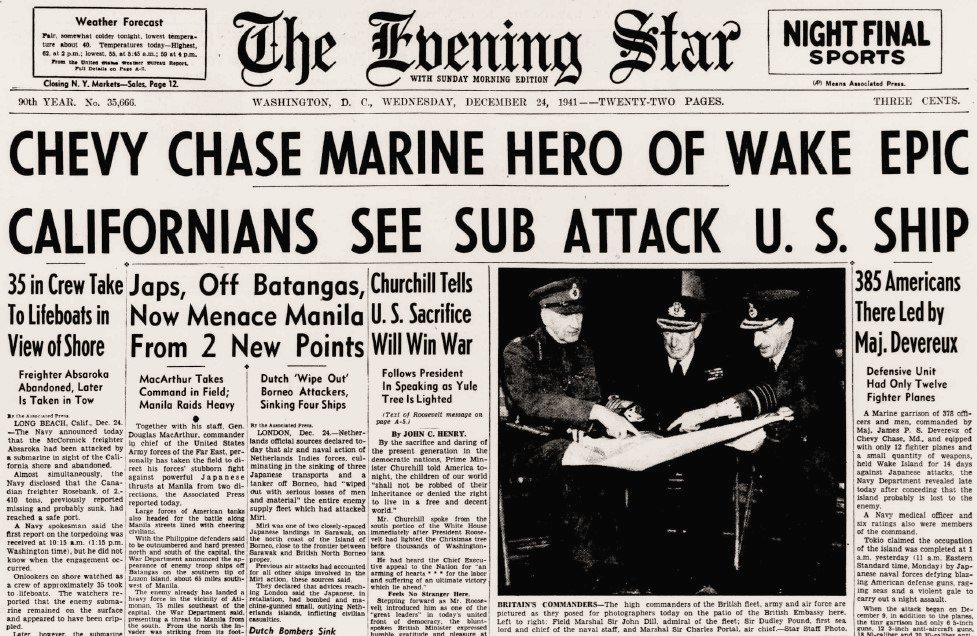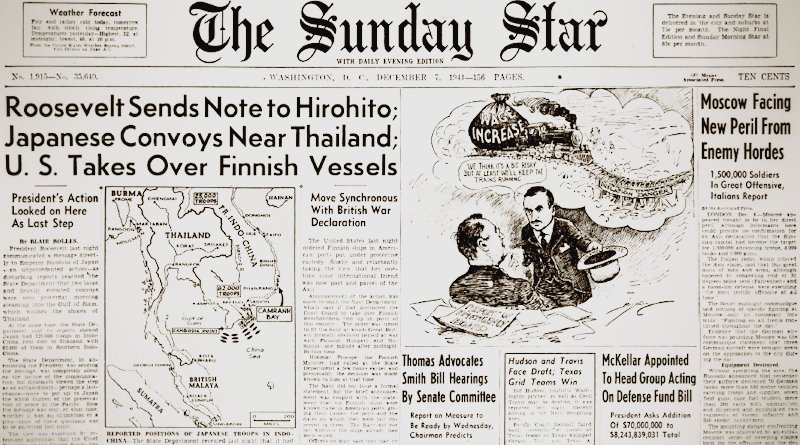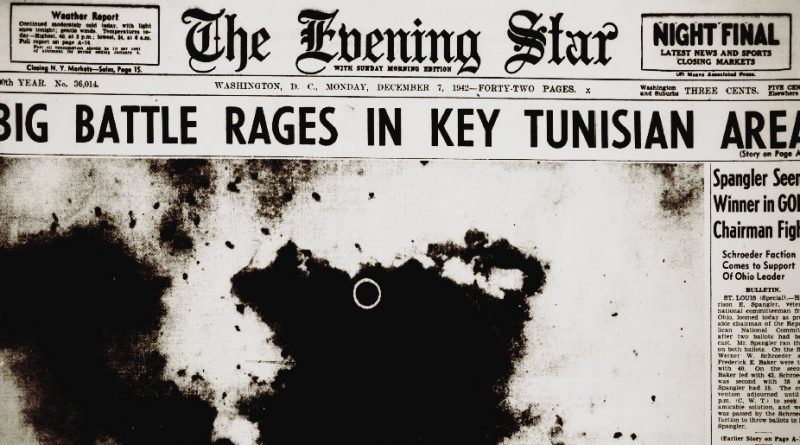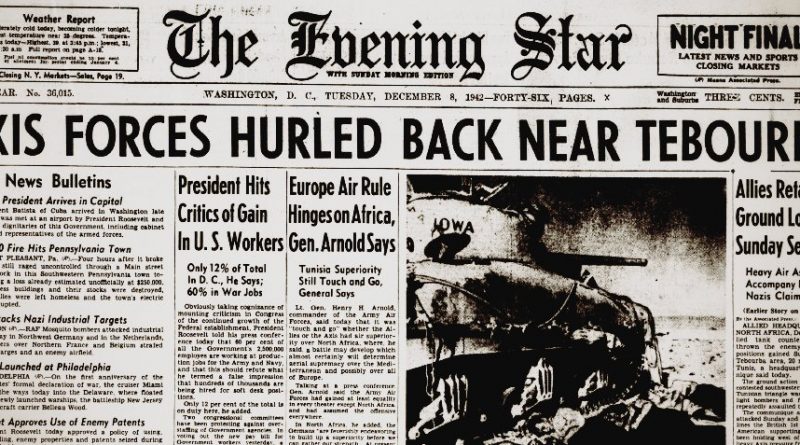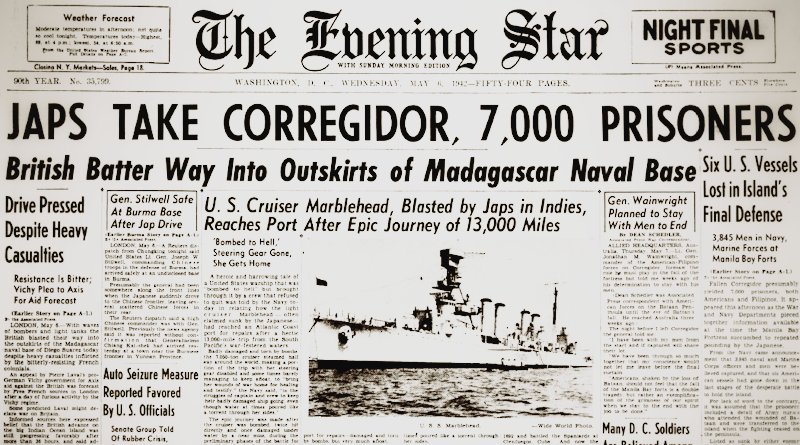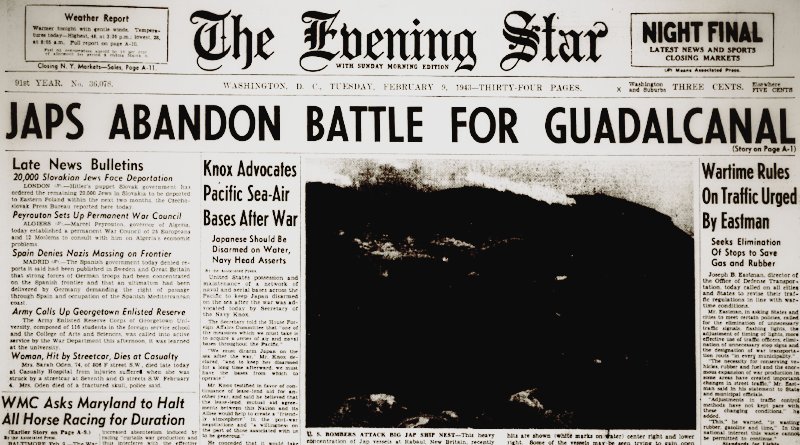World War II Chronicle: December 24, 1941
Click here for TODAY’S NEWSPAPER
Enemy Submarines Terrorize Shipping off California Coast
After coming up empty-handed in their hunt for the aircraft carrier USS Lexington following the Pearl Harbor attacks, several Imperial Japanese submarines headed for the United States West Coast to prey on American shipping. On Dec. 22 the tanker H.M. Storey narrowly avoided torpedoes and shells fired by I-19 some 50 miles north of Santa Barbara. The crew release a smokescreen and shakes the enemy submarine.
By Dec. 23 the sub threat was so great that the captain of the oil tanker SS Montebello refused to take a shipment of crude oil from Port San Luis to Vancouver, British Columbia and quits. At 0545 hours I-21 torpedoes Montebello (with the former chief mate now serving as skipper), which sinks just southwest of Piedras Blancas, Calif.. Although the sub surfaces to machine-gun the survivors, all 38 crew stay alive and reach the shore. A few hours later, I-21 shells another tanker (SS Idaho), which escapes with minimal damage.
Meanwhile, southwest of Cape Mendocino, I-17 attacks the tanker Larry Doheny. Four shells hit the vessel, starting a fire on the bridge. When a patrolling plane arrives, I-17 dives and fires a torpedo (which misses) before making its getaway. Another Japanese sub will sink the Larry Doheny off the Oregon coast in 1942. n this day I-17 strikes again, shelling the freighter Absaroka 26 miles off San Pedro. The crew abandon ship but later re-board and the freighter is towed to port. At Monterey Bay I-23 shells the steamship Dorothy Philips which runs aground…
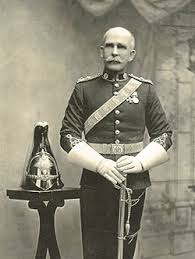
Page 4 mentions the passing of Lt. Gen. Sir Archibald C. MacDonnell, of the Canadian Army. MacDonnell joined the North-West Mounted Police (which became the Royal Canadian Mounted Police in 1920) before volunteering for the Boer War in South Africa. “Fighting Mac,” known for joining his men on the front lines, commanded the 7th Canadian Infantry Brigade before being appointed commander of the 1st Canadian Infantry Division during World War I. Following the war, he became commandant of Canada’s Royal Military College. He and Gen. Douglas MacArthur (superintendent of the U.S. Military Academy) established an annual hockey game between the two nations’ service academies in 1928…
The light cruiser USS Atlanta — the lead ship of her class — was commissioned on this day (see “Uncle Sam’s Christmas Gift” on front page). Following her shakedown on the East Coast, Atlanta will transit the Panama Canal and report to Pearl Harbor on 23 April. The anti-aircraft cruiser’s decks bristled with 16 5″/38-cal. turrets (which could fire anti-aircraft, high-explosive, or armor-piercing rounds), in addition to 20 other anti-aircraft guns. Lightly armored, she could make over 30 knots…
Sports section begins on page ten
Evening star. (Washington, D.C.), 24 December 1941. Chronicling America: Historic American Newspapers. Lib. of Congress.
https://chroniclingamerica.loc.gov/lccn/sn83045462/1941-12-24/ed-1/
